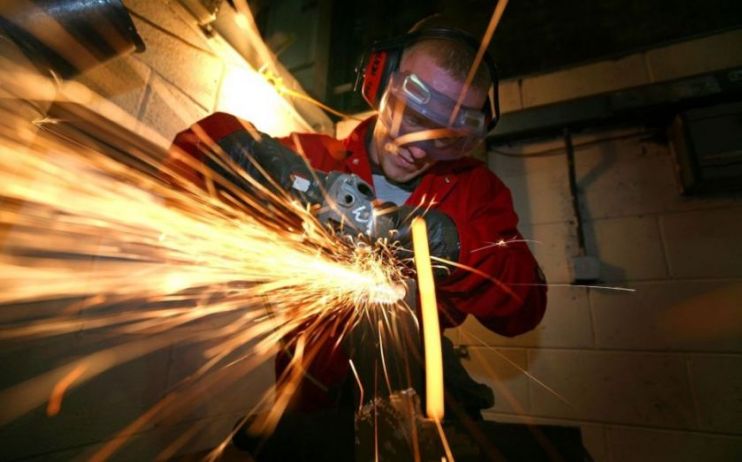UK manufacturing sector ‘suffocating’ as output falls to seven-year low

The UK’s manufacturing sector is “suffocating” from a poisonous mix of lower global economic growth and Brexit uncertainty, a closely-followed economic measure found today.
Production volumes nosedived to a seven-year low in July, IHS Markit’s UK manufacturing purchasing managers’ index (PMI) showed.
Meanwhile the sector was stuck in a contraction, with July’s PMI score of 48 flat on June’s figure and at a 6.5-year low.
Anything below 50 represents a contraction.
Rob Dobson, director at IHS Markit warned the industry is “suffocating under the choke-hold of slower global economic growth, political uncertainty and the unwinding of earlier Brexit stockpiling”.
“Clients delayed, cancelled or re-routed orders away from the UK, leading to a further decline in new work intakes from both domestic and overseas markets,” he added.
While he predicted that a short-term bounce before the 31 October Brexit deadline is possible, he ruled out a quick recovery.
“The weak, highly competitive environment makes a sustained revival highly unlikely in the coming months,” Dobson said.
A ‘killer combination’
Chartered Institute of Procurement and Supply (CIPS) director Duncan Brock said the manufacturing sector had been battered by “a killer combination of economic uncertainty and the weakest production levels for seven years”.
Chief economic adviser at EY Item Club Howard Archer said: “A further delaying of the UK’s exit from the EU past 31 October would be a worrying development for manufacturers due to the prolonging of uncertainties.
“However, they will be even more worried by the very real risk of a no deal Brexit at the end of October.
“Most of all manufacturers will be concerned by the seeming increased risk that the UK could leave the EU without a deal on 31 October as a consequence of the approach being taken by the Boris Johnson government. Manufacturers not only dread the impact that a no deal Brexit would have on demand for their products but also how it might affect their supply chains.
Thomas Pugh, economist at Capital Economics, said: “Some of the weakness can be blamed on Brexit but it seems more plausible that a weaker global economy should take most of the blame. Indeed, manufacturing PMI’s in the euro-zone and the US both fell in July as well.
“And it makes sense that as the manufacturing sector is more exposed to global economic conditions it would be hit first and hit hardest.”
More to follow.